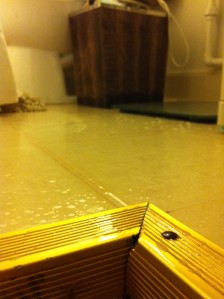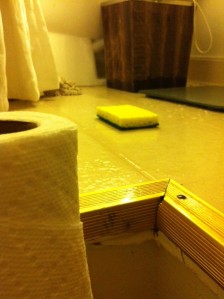Since I Quit TV: I Started Experimenting with Zen Philosophies
Since I Started Experimenting with Zen Philosophies: Life is a Puzzle Game
SIQTV: Life is a Puzzle Game
If you start to think of life as a game, you might actually have fun playing it.
Or at least that is the philosophy that I have been trying to incorporate into my daily life.
It is widely accepted that people enjoy solving problems to win a game — this is the fundamental prerequisite for the existence of puzzle games. Most modern video games revolve around the premise that there is a mission to be completed, usually to avoid some form of crisis (such as the death of your character or the apocalypse). In other words, people enjoy putting themselves in an extremely stressful (virtual) situation, just to experience the satisfaction of finding a way out. Moreover, success in these games is usually quantifiable in numerical values (such as points, level-ups, high scores, number of unlocked features, etc), encouraging players to find the single best way to beat the game in order to maximize this quantifiable success. Put simply, players must try to make the best of any situation and derive as much benefit as possible from whatever resources are available. Most people find this to be a fun challenge.
This post is about an experiment that I like to call “Life: The Puzzle Game” (not to be confused with Life™ the board game). The goal of the game is to make the best of any situation and derive as much benefit as possible from whatever resources are available. Life issues are henceforth known as puzzles. Problems are known as challenges. The rules are as follows:
- Accept the basic premise that every puzzle is solvable
- Enjoy the process of solving the puzzle
- Be happy when a solution is found
Before moving on, it should be noted that there is an important distinction between solving the puzzle and solving the problem. There are bound to be problems in life that are unsolvable, temporarily or permanently, and I do not dispute that. Solving the puzzle does not mean you have solved the problem. In fact, solving the puzzle can mean:
- Finally making peace with the existence a perpetually unsolvable problem
- Determining that a problem may be currently unsolvable because it is meant to be attempted at a different time in life
- Recognizing the positive attributes of a situation previously viewed as purely problematic
The key is that the goal is to make the best of things — i.e. the goal is to be happy. If you have found a way to feel happy in the presence of a puzzle or a challenge, you have solved it.
Here is an example of a puzzle:
The other day, I attempted to run a bath for myself. As usual, I plugged the drain, turned on the hot water, and left the room to allow ample time for the tub to fill (the water pressure in my apartment is less than impressive). I returned to find my entire bathroom not only under water, but under incredibly soapy water.
Apparently, the lever that switches the water pressure from the bath to the shower head somehow snapped back to the shower position while I was absent the room. This would not have been a problem had it not snapped back only half-way, awkwardly allowing only enough water pressure at the shower head to yield a steady stream of water dripping straight down (as opposed to shooting out diagonally like a normal shower). Yet again, even this would not have been a problem except there happened to be a bar of soap perched on the faucets directly below the shower head. When I returned to the bathroom, there was water shooting straight down onto the bar of soap and bouncing off the soap in all directions with a surprisingly far-reaching trajectory. To clarify, the soap was acting as both the launching pad for the water and also the source of the soap content in the water. Soapy water covered everything within five feet of the shower in any direction, including but not limited to the tiled floors, the walls, the furniture, the rug, the bathmat, and various miscellaneous items such as clothes.
At first, I just stood in a state of mild shock, staring at the shower in disbelief, marveling at the perfectly executed soapy-water-launcher that I had accidentally created. After a minute or two of looking around to assess the damage, I had a thought:
Well . . . my bathroom is going to be really clean now.
If I were to try to purposely deep-clean my bathroom, I probably would not have had the guts to just throw soapy water in every direction and then wipe it down with towels. I probably would have done it very carefully, one small section at a time, using paper towels and chemicals, taking hours to get it done. Truthfully, that sounds awful, and I probably wouldn’t have done it at all — the fact that no dusty corner in my bathroom had felt the cool sting of detergent in several months supports that theory.
It seemed like a tragedy for about two minutes: the two minutes when I was thinking of it as a tragedy. It was late at night, and I was planning to use my bath as a small break in between epic studying sessions for my exam the following day. It had not quite gone according to plan.
However, as cliche as it may sound, when I tried to look at the bright side, I realized that it had actually been bothering me that parts of my bathroom had been dirty for so long. After I had wiped everything down and vacuum blow-dried the rugs (I had to improvise), I actually felt a lot better. Cleaning the bathroom was no longer hovering in the back of my mind, irritating me like a fly hovering next to my ear.
.
.
.
.
.
.
.
.
.
Puzzle solved.
Another example: my phone recently self-destructed.
One day, the ATT bars in the corner of the screen had disappeared. This was not such a rare occurrence, and I originally expected the signal to return, but I lost hope after a day or two.
I ended up getting the newer version of my phone, creating a bootable disc image of my old computer
on my external drive, getting the software on the drive updated for free, and getting professional help with all the complicated file-, appdata-, and application transfers I had been putting off indefinitely. Basically, I decided that if I was going to have to spend a significant amount of time in the Apple Store, I was going to get things done. And I did. And I was happy.
Puzzle solved.
Exploding bathtubs and self-destructing cell phones… it kind of sounds like a cross between the Sims and Modern Warfare, and I hope to be able to treat as such. I don’t want to live my life in front of a television screen, be it watching a show or playing a video game. However, I see no problem with playing my life as a game, no TV screens necessary.
It’s all a matter of perspective, and if you assume that there is a positive perspective out there somewhere to be found, you might just be able to find it and win the game. Just don’t forget to enjoy playing, and be proud of yourself for solving your puzzles.



That was helpful addition to TNH retreat message: bring attention back to present through mindfulness and now I will add another layer to his message: look at problems as a puzzle and/or problem in a new way– as a challenge to solve, accept, or look at in new perspective. It was so cleverly written and so insightful. I really enjoyed reading it.